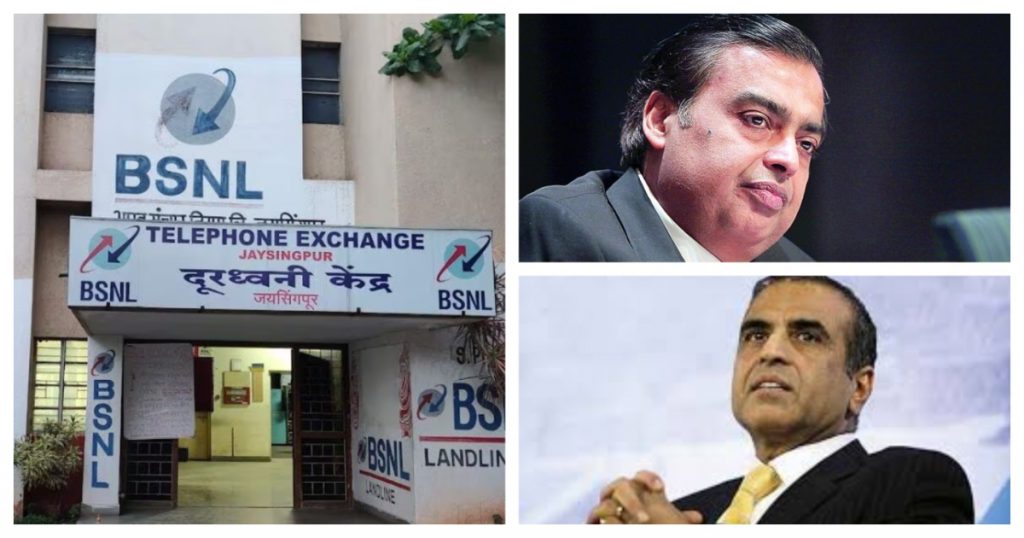Jio, Airtel and Vodafone-Idea had simultaneously hiked prices of their plans assuming they together were a virtual monopoly in India’s telecom space, but they appear to have overlooked another player in the game.
Over 2.5 lakh Indian users have ported their numbers to government-run BSNL since the three private telecom players had raised prices in near-unison. Since July 3rd, when the hikes came into effect, these users have ported to BSNL from other firms using Mobile Number Portability (MNP). BSNL hadn’t raised tariffs along with the three private firms, and now offers much cheaper plans than its competitors.

Last month, Indian telecom companies had announced significant price hikes, the first such move in around 30 months. Jio had raised prices between 12-25 percent for its plans, while Airtel had raised prices between 10-21 percent. VI’s prices had been raised between 11-24 percent for its different plans. This has meant that the cheapest 28-days monthly plan with data and voice benefits now starts at Rs. 199 for Bharti Airtel and Vodafone Idea, and at Rs. 189 for Jio, BSNL offers a similar plan with similar benefits for just Rs. 108.
It’s this price difference which appears to have made over 2.5 lakh people switch their telecom provider from one of the private networks to state-run BSNL. BSNL has also added around 2.5 million new connections to its network, which has made its userbase balloon even further. Before the price hikes, Reliance Jio was India’s leading telecom provider with 39.7 percent marke tshare, followed by Airtel at 32 percent and Vodafone Idea at 18 percent. BSNL was the smallest of the lot, with only 7.7 percent market share.
But customers porting into BSNL could help the government-run player grow in prominence in the coming quarters. BSNL’s tariffs, though, are cheaper for a reason — it hasn’t yet fully migrated to 4G for its network, and its coverage might not be as extensive as those of its private counterparts. Value-conscious customers, however, won’t mind porting into BSNL to save money every month. Interestingly, this wouldn’t hurt the bigger private players at the moment, because they’ll more than offset the loss in their userbases with the increased tariffs from the customers they’re able to retain. But if BSNL can continue to grow its network, and keep its prices competitive, it could end up being a viable competitor in India’s telecom wars.